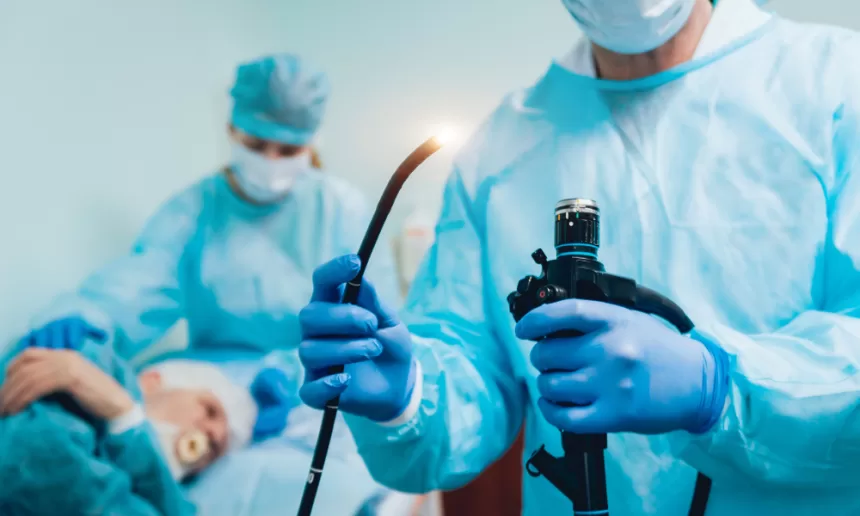Functional Endoscopic Sinus Surgery (FESS)
Introduction
Surgeons perform Functional Endoscopic Sinus Surgery as a minor surgical procedure to treat long-term sinus complications, such as sinusitis. The surgery restores sinus function and eliminates the risk of recurrent infection. Unlike traditional surgical procedures, which require large incisions in the nasal area, FESS employs small, specially designed tools to navigate and work through these passages, usually allowing for rapid recovery and decreased risk. Therefore, it suits those who don’t respond well to medication and other treatments against sinus problems.
FESS stands for Functional Endoscopic Sinus Surgery.
FESS is surgery that removes any blockages or damaged tissue so that normal drainage of the sinuses may return. It employs an endoscope, which is a flexible thin tube carrying light and a camera at its distal end; the surgeon uses it to look directly into the sinuses with minimal invasive wounds. Its prime goal is sinus drainage and improved airflow for better healing of sinuses to help them work well and diminish frequent sinus infections.
Why is Functional Endoscopic Sinus Surgery (FESS) Needed?
FESS is recommended for patients suffering from chronic sinusitis that doesn’t improve with medications or other treatments. This includes conditions like:
- Chronic sinus infections
- Nasal polyps
- Deviated septum
- Sinus tumors
- Allergic fungal sinusitis
For many patients, FESS provides a permanent solution, reducing the need for frequent antibiotic use and offering relief from nasal congestion, headaches, and other sinus-related symptoms.
Types of Functional Endoscopic Sinus Surgery (FESS)
Approaches to FESS vary according to how severe the situation is in the condition.
- Simple FESS: It is focused on removing blockages or polyps in specific sinus cavities, such as the frontal or maxillary sinuses.
- Comprehensive FESS: This is a more extensive surgery that involves the removal of damaged tissue and the opening of multiple sinuses for the normalization of drainage.
- Balloon Sinuplasty: This is an intervention done without surgery using a balloon to clear up blocked passages of the sinus, often conducted during a FESS procedure
Steps involved
- Pre-surgery preparation: One is often compelled to undertake scan imaging like the CT scans that indicate the intensity of blockage.
- Anesthesia: It depends on the intensity, whether a general or regional anesthesia supplemented by sedation is adopted in performing the surgery.
- Endoscopic Insertion: The surgeon places the endoscope into the nasal cavity and navigates it through the sinus passages.
- Surgical Intervention: The surgeon excises the tissue causing blockages, polyps, or any infected material.
- Postoperative Care: After the procedure, patients are observed for any immediate issues and are provided with instructions for nasal care and follow-up visits.
Benefits of Functional Endoscopic Sinus Surgery (FESS)
- Improved Sinus Drainage: FESS helps restore normal sinus function, enabling mucus to drain naturally.
- Minimally Invasive: FESS entails small incisions and the aid of advanced tools, which usually reduces recovery periods compared to normal surgery.
- Decreased Complications: The success of the surgical procedure minimizes the chances of complications.
- High Quality of Life: Most people feel instant comfort from chronic sinus problems, which include congestion, headaches, or facial pain.
- Long-Term Cure: A long-term relief is achieved from FESS treatment, thus resulting in fewer recurrence treatments.
Functional Endoscopic Sinus Surgery Cost
- India: $2,000-$3,500
- US.: $7,000-$10,000
- UK.: $6,500-$9,000
- Germany: $5,500-$8,500
- Thailand: $2,500-$4,000
As illustrated, the price of FESS in India is by far less than in Western countries, hence a very good medical tourism destination.
Top Hospitals in India For Treatment
There are many of the best hospitals in India well-equipped to do FESS:
- Metro Hospital, Faridabad
- Fortis Hospital, Gurgaon
- Max Super Specialty Hospital, Delhi
- BLK Super Specialty Hospital, Delhi
- Apollo Hospital, New Delhi
These hospitals have up-to-date technology for high-end medical care and experienced surgeons trained specifically in sinus surgeries.
Risks and Complications
Although FESS is generally a safe procedure, as with any surgery, there are risks. These include:
- Infection: Infection at the incision site or in the sinuses is possible but rare.
- Bleeding: Some bleeding is to be expected, but excessive bleeding is rare.
- Nasal Dryness and Crusting: This may occur during recovery, but it is usually temporary.
- Changes in Smell or Taste: Occasionally, patients will experience a temporary change in their ability to smell or taste.
- Nasal Perforation: The septum can sometimes be punctured during surgery, which is an extremely rare incidence.
Recovery
The recovery time from FESS is about 1–2 weeks. Most patients report relief from the sinus-related symptoms immediately after the procedure, but full recovery can take a few months. Postoperative care includes:
- Rest: Rest for at least 1–2 days after the procedure.
- Nasal Care: Patients should use saline sprays and avoid blowing their nose for the first week.
- Follow-Up Visits: Frequent visits to the surgeon for the assessment of the healing.
- Avoid Irritants: Smoke, dust, and allergens are to be avoided to have proper healing.
Functional Endoscopic Sinus Surgery is an efficient and minimally invasive treatment modality for chronic sinus problems. It is now a preferred modality for several patients worldwide as it is cheaper and has excellent success rates. Understanding the procedure, benefits, costs, and recovery process are all part of making an informed decision about their treatment options.



